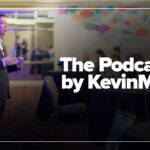Faculty retention remains an ongoing concern for colleges and universities, especially at a time when there is a clear misalignment between the socio-political environment, the mission of higher education, and the values held by most faculty. If you’ve been paying attention, you know: higher education is experiencing waves of faculty disengagement.
However, some institutions respond to crises not with dialogue, but with silence. They avoid confronting faculty concerns and hope that discontent will settle on its own.
Let me be clear: Silence as a faculty retention strategy does not work.
In my decades of experience in higher education and academic health, I’ve observed that silence actually accelerates faculty turnover rather than preventing it. I shouldn’t have to mention the evidence in attrition of historically marginalized faculty, but I will: White faculty have the longest median retention at 10 years, while historically marginalized faculty leave academic medicine a median of 1 to 4 years earlier. Women leave earlier than men by at least one year, on average. Women and faculty from underrepresented groups experience significantly worse retention outcomes.
Silence doesn’t just fail, it backfires. Faculty, including myself, often interpret institutional silence as avoidance, a lack of support or courage, and limited institutional resilience. Some leaders may view silence as a way to avoid “making things worse,” but those who are overworked, undervalued, and underrepresented may see it as indifference.
Moreover, some higher education leaders assume that if faculty aren’t voicing their concerns, individually or collectively, then things are OK, fine. I urge those leaders to consider this: Silence from faculty stems from fear of retaliation, burnout, resignation to the status quo, or worse, the belief that speaking up no longer makes a difference. My list is not exhaustive.
Faculty surveys and exit interviews often reveal that disconnection and disappointment begin long before faculty leave. They gradually stop participating in institutional service, committee work, and community-building. When I conduct exit interviews, historically marginalized faculty often are already emotionally and professionally detached. I advocate for stay interviews to intervene before the damage is done.
This era of institutional silence, and fear and frustration, will make it harder than ever to retain top faculty. Institutions that rely on silence as any sort of strategy will face consequences: damaged reputations, loss of expertise, diminished morale, and that is just from the faculty perspective. What about the broader impact on students and the public?
In my opinion, leaders already know how to address this problem. They know the usual: Active listening, transparency, open channels for feedback, formal recognition, timely communication, and, most importantly, leadership accountability.
Silence undermines so much—trust, morale, and community. Faculty do not expect a perfect institution. But they do expect to be heard, feel respected, and involved in decisions that shape their academic lives and the lives of their students.
Call to action: Break the silence
If you are a faculty member, speak up when you can, and when it feels safe to do so. Throughout the history of higher education, collective voices have been one of the most powerful forces for change. If you are a leader, reflect. Take a look at how your institution is navigating massive uncertainty. Are you hoping silence will hold things together? Or is that silence upholding the status quo? Is it perpetuating regressive conversations?
I think now more than ever, it is a time for reflection and dialogue. Break the silence for your faculty, for your students, the institution’s mission and values, and for the future of academic medicine.
Sylk Sotto is a bioethicist.






















![AI censorship threatens the lifeline of caregiver support [PODCAST]](https://kevinmd.com/wp-content/uploads/Design-2-190x100.jpg)

